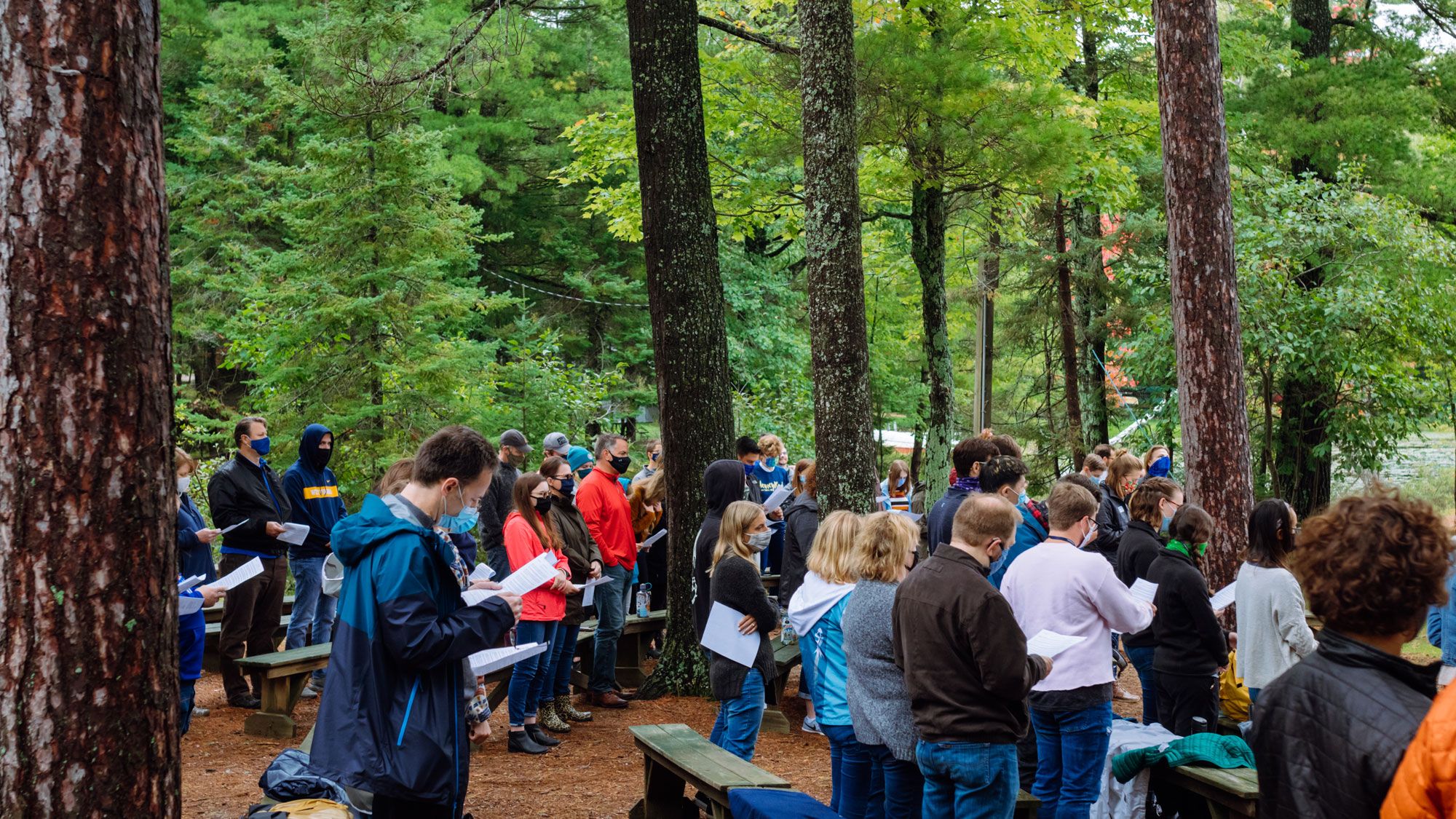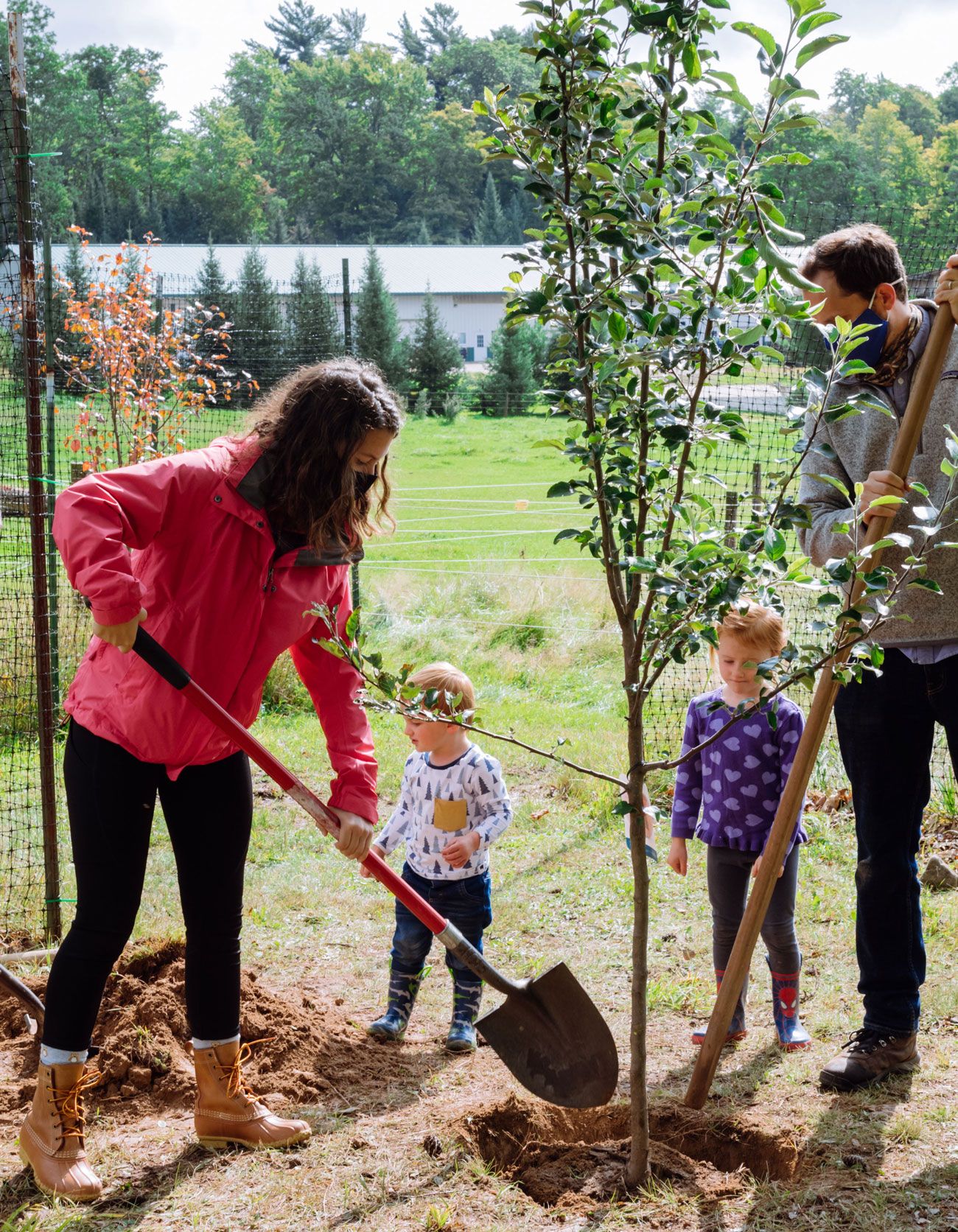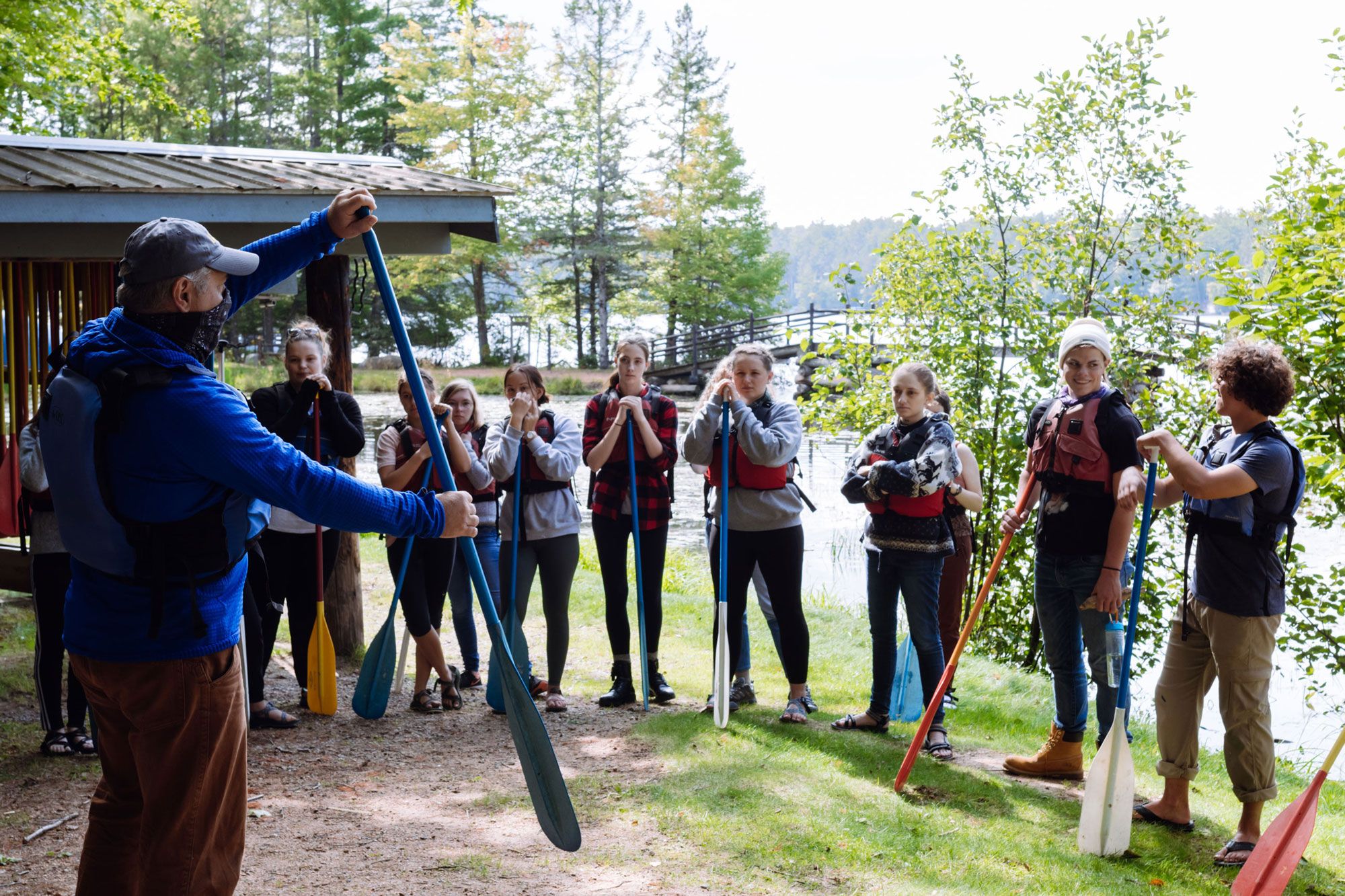November 2, 2020
Vanguards are recent high school graduates taking a gap year at HoneyRock to earn college credits, build work experience, spend time in creation, and deepen their faith in Christ. This year, twenty-five students are participating in the program. As a part of their Introduction to Spiritual Formation class, they participate in a six-week technology fast that begins in their first week at HoneyRock. Meg Wolfe, Vanguard ‘21, reflects on the experience so far.
At the time I’m writing this, we’re over halfway through a six-week technology fast. What does that mean? A time of no smartphones, computers, digital music, or videos—basically, if it can connect to wifi, it’s out.
“By not having phones on them for the first six weeks of the year, Vanguards are able to be less distracted and more present,” says Charlie Goeke, Program Director at HoneyRock. “We’ve seen it foster an environment full of opportunities to experience the Lord and their new community.”
Transitioning from a digitally saturated world to the Wisconsin Northwoods is a challenge, especially with all of the change that has occurred within the past six months. As a result of COVID-19, more and more aspects of daily life are going online. One might argue that we have spent more time online in the past six months than the previous year. From telehealth appointments to Zoom classes, society’s relationship with technology is at a turning point. When asked to describe what the fast is like, Goeke says, “It’s a fish out of water experience, the tech fast allows you to not be so immersed in digital technology. The only way to gain that perspective is through a fast.”
Throughout the fast, we have purposefully reflected on the experience, thinking about our personal habits, implications of technology on spiritual formation, the benefits of taking a break from regular social media engagement, and the influence of technology on building Christian community.
Last week we had the opportunity to gather in class to discuss different aspects of technology. Some topics included the role of technology in society, the relationship between technology and the Sabbath, and feelings about the tech fast. We talked about challenges such as communication with friends and family, and benefits like developing a strong and authentic community in a short amount of time. The general consensus was “Hey, this actually isn’t so bad.”
I sat down with my fellow Vanguards Joseph Oliver, Jamin-Sinclair Lee, and Sterling Gleeson to get their thoughts about the fast so far. Here’s what they had to share:
Q: What personal benefits have you noticed?
A: When I have digital technology around it’s a stress factor and weight on my shoulders. I feel like I have friends and news to keep up with, and I worry about what’s going to happen next. Taking that stress factor away and focusing on relationships is definitely a benefit. —Joseph Oliver
I think taking a break from technology is definitely something I want to implement in my life in the future. I think it's really good to take a break from that constant input from the outside world. Being present is something that I came into this year wanting to do, and the tech fast is really helping with that. —Sterling Gleeson
Q: Has anything surprised you?
A: I expected there to be a lot more grumbling as the whole from the Vanguards about the tech fast. There are definitely some days where we miss things, but I expected a lot more pushback. I’ve been surprised by the fact that there’s been a fairly calm consensus that this isn’t so bad and something we can learn from. —Jamin Sinclair-Lee
I thought I would miss my phone more than I do. I thought it was going to be really hard to not have devices but honestly, it's been a very refreshing experience. I don't know if there will be any other time in my life when I'll be able to spend six weeks without any technology, just because of how technology-oriented our culture is. I’ve really enjoyed it. —Sterling Gleeson
Q: What challenges have you faced during the technology fast?
A: I miss communicating with my peers back home and seeing where their lives are at because I have a lot of friends now that have gone off to college. I wish I could see where they're at, but I know that I can catch up with him later so it's a matter of patience. —Jamin Sinclair-Lee
The hardest part about the tech fast so far has been the communication aspect. This morning it snowed, and I thought “Hey I should write a letter to my sister telling her that it snowed!” but she won’t get it until a week from now, which is kind of sad. —Sterling Gleeson
Q: How has not having smartphones or social media affected the community?
A: Last night a few of us were talking about this, and a specific statement that caught my ear was that within a tech fast you get through the topsoil conversation so much faster and you can move on to deeper, more intimate questions. You can get to know a person and who they are as opposed to simply what they like and what they do. It’s a beautiful way to build a confident and strong community in such a short amount of time. —Jamin Sinclair-Lee
It forces people to dig into conversation with one another and not use their phone as an excuse. Coming to such a new environment like this, I feel like it would be easy to cling to your phone and old contacts, and it would take longer to get into a good community. The fact that none of us have our phones has forced us to make friends because conversation was the only option. It's really nice walking into a room and not seeing anybody staring at their phone. —Sterling Gleeson
Q: How has it affected your spiritual development?
A: Spiritually, it’s one more distraction out of the way so I can really start to think about hard questions and have deep discussions, like during my one-on-one or with other Vanguards. For me, it’s like a fogged window being wiped clean, so I can actually see where I’m trying to go and focus on my future. —Joseph Oliver
The tech fast has actually affected my Spiritual Development a lot. Even the first few days here I had multiple deep conversations with other Vanguards about theology and what I believe, and after those conversations, I wanted to go talk to my parents or find sources online, and I couldn't because I didn’t have my phone or computer. I had to go to the library and grab my Bible and a concordance and read through as many different passages of scripture as I could. It really forced me to dig into my beliefs on my own time, and to nail that down based on my own analysis of scripture, not what my parents or a book tell me. —Sterling Gleeson
As I’ve reflected on my experience with the fast so far, I’ve been grateful for the opportunity to truly disconnect from technology. It has been refreshing, peaceful, and easier than anticipated. It’s also been uncomfortable, but that is where growth happens. That is part of the purpose, to lean into the discomfort and reevaluate our relationships with technology. The tech fast has also forced me to be intentional with my time and energy.
As a Vanguard community, we have formed such strong connections and relationships in a relatively short amount of time. I always have people to go to—nobody can hideaway on their phone. Instead, we play cards, rock climb, read aloud to each other, and have late-night discussions in the dining hall. I am so thankful for this community, especially during a global pandemic.—Meg Wolfe





